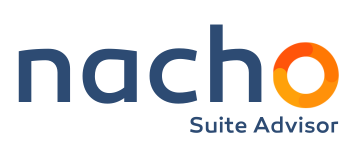Effective Time and Expense Management in NetSuite

In today’s fast-paced business environment, effective time and expense management is crucial for organizations aiming to optimize their operations and enhance profitability. NetSuite, a leading cloud-based Enterprise Resource Planning (ERP) solution, offers robust tools for managing time and expenses efficiently. This article explores the features of NetSuite that facilitate effective time and expense management, supported by examples and case studies.
Understanding Time and Expense Management
Time and expense management involves tracking the time employees spend on various tasks and the expenses incurred during project execution. Effective management in these areas can lead to improved project profitability, better resource allocation, and enhanced employee productivity. Key components include:
- Time Tracking: Monitoring hours worked on specific projects or tasks.
- Expense Reporting: Documenting and approving expenses related to projects.
- Budgeting: Setting financial limits for projects and tracking adherence to these budgets.
NetSuite’s Time and Expense Management Features
NetSuite provides a comprehensive suite of tools designed to streamline time and expense management. Some of the standout features include:
- Real-Time Tracking: Employees can log their hours and expenses in real-time, ensuring accurate data collection.
- Mobile Accessibility: The NetSuite mobile app allows users to enter time and expenses on-the-go, increasing compliance and reducing delays.
- Automated Workflows: NetSuite automates the approval process for time and expense reports, reducing administrative overhead.
- Integration with Projects: Time and expenses can be directly linked to specific projects, providing clear visibility into project costs and profitability.
Case Study: A Real-World Example
To illustrate the effectiveness of NetSuite in managing time and expenses, consider the case of a mid-sized consulting firm that implemented NetSuite to address inefficiencies in their previous manual processes. Before adopting NetSuite, the firm faced challenges such as:
- Inaccurate time tracking leading to billing discrepancies.
- Delayed expense approvals causing cash flow issues.
- Lack of visibility into project costs, making it difficult to assess profitability.
After implementing NetSuite, the firm experienced significant improvements:
- Time tracking accuracy improved by 40%, resulting in more accurate client billing.
- Expense approval times were reduced from days to hours, enhancing cash flow management.
- Project profitability analysis became straightforward, allowing for better decision-making on future projects.
Best Practices for Effective Time and Expense Management in NetSuite
To maximize the benefits of NetSuite’s time and expense management features, organizations should consider the following best practices:
- Train Employees: Ensure that all employees are trained on how to use NetSuite effectively for time and expense reporting.
- Set Clear Policies: Establish clear guidelines for time tracking and expense reporting to ensure compliance.
- Regularly Review Reports: Conduct regular reviews of time and expense reports to identify trends and areas for improvement.
- Utilize Dashboards: Leverage NetSuite’s dashboard capabilities to gain real-time insights into time and expense data.
Conclusion
Effective time and expense management is essential for organizations looking to enhance their operational efficiency and profitability. NetSuite offers a powerful platform that simplifies these processes through real-time tracking, mobile accessibility, and automated workflows. By adopting best practices and leveraging the features of NetSuite, businesses can gain better control over their resources, improve project profitability, and ultimately drive growth. As demonstrated in the case study, organizations that embrace these tools can transform their time and expense management practices, leading to significant operational improvements.
“`

